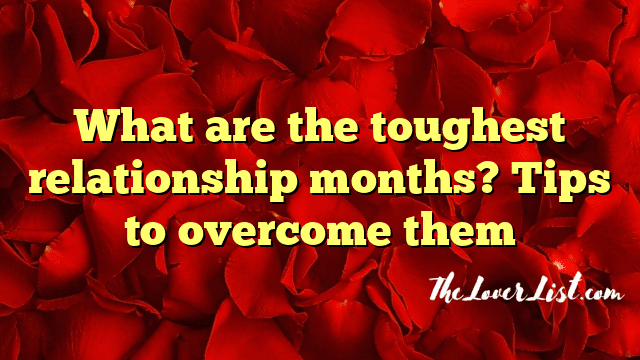Is Yelling Destroying Your Marriage? Here’s What You Need to Know
I never thought I would become a yeller. I’ve always prided myself on being a calm, collected person. But somehow, after years of marriage, two kids, and a constantly hectic schedule, the yelling just crept in. At first, it was just frustration bubbling over, but soon it became a regular occurrence. And before I knew it, I was damaging my marriage with my anger.
I’m sure I’m not alone in this. Many of us have fallen into the trap of using yelling as a form of communication with our partners. We lash out in anger, without even realizing the harm we’re causing. But the truth is that yelling can be incredibly destructive to a relationship.
In this post, we’ll explore why yelling is so damaging and what you can do to stop it from destroying your marriage. If you’re ready to take control of your anger and repair your relationship, keep reading.
Is yelling bad in a marriage?
If you find yourself in a situation where you’re about to yell, take a step back and try to calm down before continuing the conversation. Remember, effective communication is key to a healthy relationship, and yelling is not an effective way to communicate.
???? Pro Tips:
1. Understand the root cause: Yelling is usually a symptom of underlying issues that need to be addressed. Identify the triggers that make you or your partner yell and begin by resolving those issues.
2. Communicate effectively: Effective communication is key to a successful marriage. Learn to express your opinions and feelings without resorting to yelling. Listen actively and try to understand your partner’s point of view.
3. Take a break: When emotions are running high, taking a break from the argument can be beneficial. Step away from each other, cool down, and then resume the conversation when you’re both calmer.
4. Seek professional help: If yelling is a frequent occurrence in your marriage and you find it difficult to resolve issues on your own, consider seeking professional help. A therapist or counselor can help you both communicate better and develop effective conflict-resolution skills.
5. Show appreciation: Showing appreciation for your partner and their efforts can go a long way in strengthening your relationship. Make it a habit to express gratitude for things your partner does that you appreciate. It can help create a positive and happy atmosphere in your marriage.
Is Yelling Bad in a Marriage?
Marriages can be tough, and sometimes, it is easy to lose one’s cool and raise their voice in frustration. However, yelling at one’s partner or spouse can have devastating consequences on both their mental health and the relationship. While some people may not realize the effects of yelling, it is important to understand the impact it has.
The Impact of Yelling on Mental Health
Yelling at your partner can lead to negative psychological effects on both parties. When one yells, it affects the other person’s self-esteem, which can lead to anxiety and depression. The person who yells may feel like they have won a verbal argument, but in reality, they lose the emotional connection they had with their spouse. Yelling can also increase stress levels in the body, which can lead to physical health issues.
Additionally, when a couple yells instead of communicating with each other in a calm and peaceful manner, it can lead to resentment and anger that builds up over time. This can cause the relationship to deteriorate and become increasingly more difficult to manage over time.
Understanding the Root Cause of Yelling in Marriages
Yelling is often a reaction to something deeper. It could be a result of stress, past traumas, or emotions that have not been expressed in a healthy way. Couples may also yell because they lack effective communication skills, which can create misunderstanding and lead to frustration.
It is important for couples to identify the root cause of yelling in their relationship. Understanding why one yells can help the couple take positive steps towards reconciliation. In many cases, it may be a good idea to talk to a counselor or therapist to gain more insight into why one yells and what steps can be taken to reduce this behavior.
Identifying Triggers that Lead to Yelling in a Marriage
One of the most important things couples can do is to identify the triggers that lead to yelling. These triggers could be anything from finances, domestic responsibilities, parenting, or even a lack of intimacy. It is important to recognize those conversations or situations that lead to tension and to approach them with care when they arise.
Here are some common triggers that can lead to yelling and how to identify them:
Bottled Up Emotions
When one holds in their emotions or feelings, it can lead to an explosive reaction when a minor issue arises. To avoid yelling, it is essential to communicate with one’s partner their emotions and feelings without suppressing them.
Lack of Empathy
When partners do not understand each other’s perspectives, they can tend to dismiss the other’s feelings leading to resentment and eventually, yelling.
Stress
When a partner is stressed, small issues in their relationship can feel like a threat leading to an uncontrolled outburst.
Practical Ways to Avoid Yelling in a Frustrating Situation
Here are some strategies couples can use to avoid yelling in frustrating situations:
Take A Break: If passion is running high and yelling seems inevitable, take a break to calm down. It is important to take some space and get some fresh air to cool down.
Choose The Right Time: When discussing sensitive issues, choose the right time and do not initiate the conversation when both are feeling stressed or under pressure.
Be Respectful: Practice politeness and kind behavior towards your partner whenever possible. Being respectful and courteous can help to cool down frustration instead of adding fuel to the fire.
How To Apologize After Yelling at Your Spouse
When one yells at their partner or spouse, it is essential to apologize and acknowledge the hurt that was caused. Here are some tips when apologizing:
Be Sincere: Express remorse and ask for forgiveness through honest communication.
Own Your Actions: Accept responsibility for your actions. Do not try to cover up your behavior or lay blame on the other person.
Make It Right: Make a commitment to make it right. Consider making restitution or going out of your way to show that you are committed to the relationship and that you value it.
Creating A Healthy Communication Environment In Your Marriage
Effective communication and healthy dialogue are essential to creating a lasting and healthy marriage. Here are some strategies to build a robust communication environment:
Active Listening: One of the most frequent problems in marital communication is inadequate listening. Respecting your partner’s viewpoint is essential to creating a healthy environment.
Set Boundaries: Agree on clear boundaries and lines of communication. This agreement can help create an atmosphere of trust and mutual respect.
Be a Team: Finally, it is important to recognize that, as a couple, you are a team and should always seek to work towards common goals. Maintaining open lines of communication can help build a stronger relationship in the long run.
In conclusion, yelling is not only bad but can be destructive to a marriage. It is essential to identify triggers and to take practical steps to reduce the likelihood of yelling. Apologize when necessary and take the time to build a healthy communication environment. Working together, a couple can overcome the challenges of yelling and build a stronger, healthier, and happier marriage.







